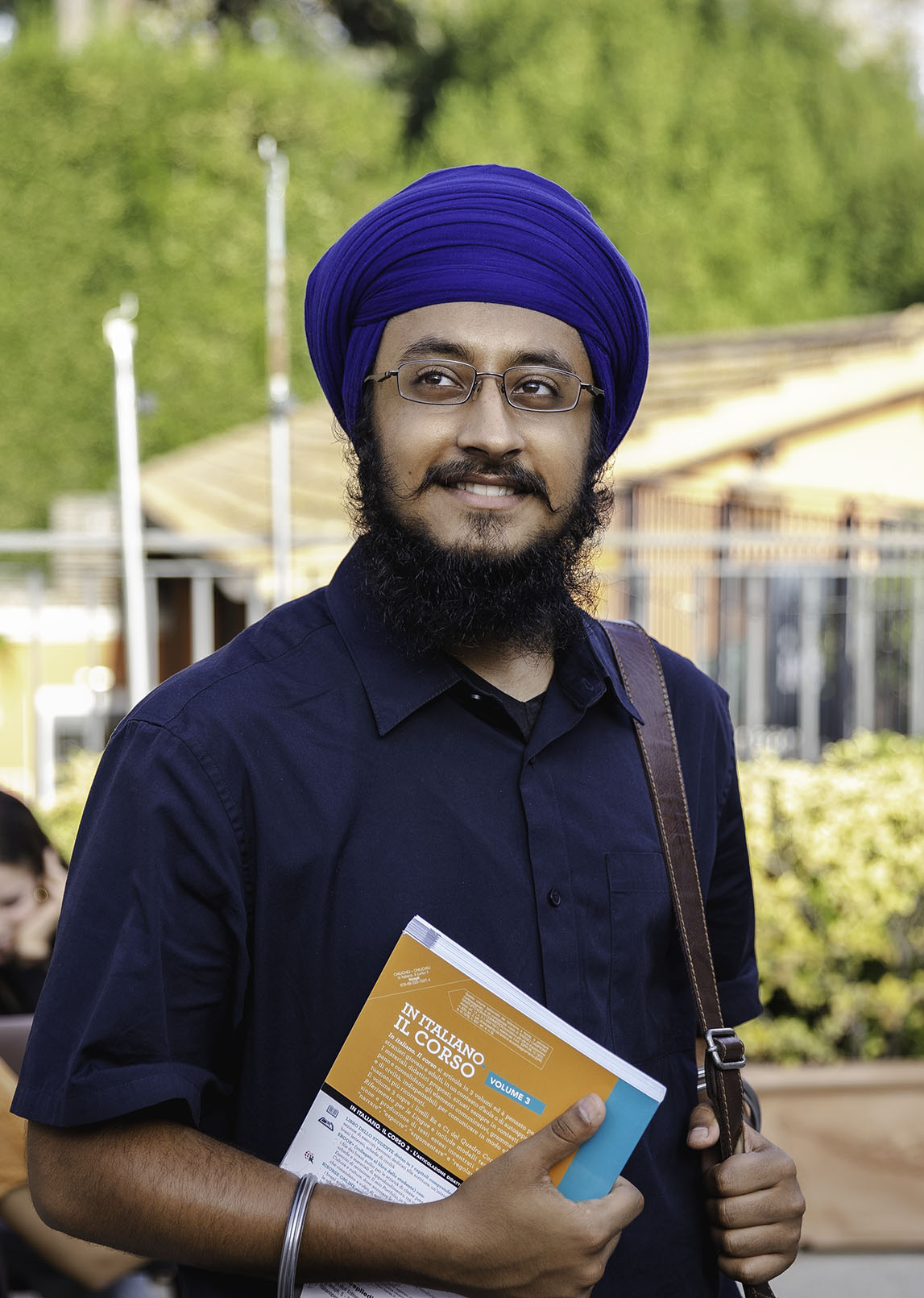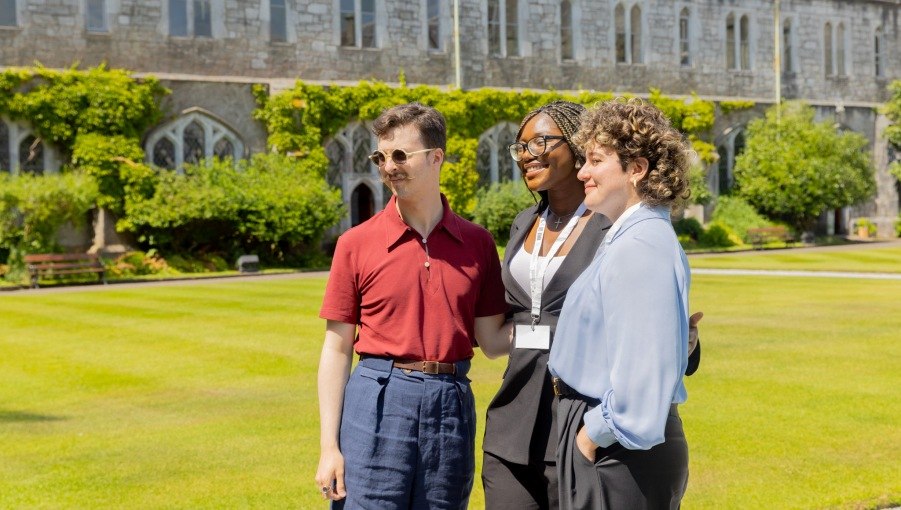Diplomacy is Key: Meet International Affairs Major Harman Singh
Originally hailing from India, Harman Singh grew up in the States. He is an International Affairs major, the Vice President of Student Government, and President of the International Relations Society (IRS). With him, we talked about the importance of diplomacy and cooperation that goes beyond our borders.
Tell us a bit about your background.
I was born in Punjab, India, a small state in the North-Western part of the country, close to Pakistan. When I was a year old, my family and I moved to the United States. I lived my whole life in Portland, Oregon.

What prompted your decision to study here at JCU?
It was quite a last-minute decision. I found out about JCU only one month before the application deadline, but it’s the best choice I could have made. Rome had always been on my bucket list of places to visit, so this was a wonderful opportunity. Before applying, I looked up the professors of the Political Science and International Affairs Department, which is what I was interested in, and I was amazed by their diversity and qualifications. You have this European atmosphere, you are immersed in Italian culture, the weather in Rome is great, and to be honest, it is also a lot cheaper studying here than in the US. Why say no to studying abroad for four years in Rome? It is too good of an opportunity to pass up.
What made you choose to major in International Affairs with a minor in Legal Studies?
I was very interested in politics, philosophy, and critical theory during high school, where I took part in debates for four years. It was just a natural extension of my personal interests. Coming from an immigrant background and growing up listening to my parents’ stories, I felt a natural connection that drew me towards the international aspect of politics, whether it’s the immigrant side of domestic policies or international cooperation.
You’re Vice President of Student Government, and that holds a lot of responsibility. What plans do you have in store for this term?
My choice to join Student Government comes from a personal opinion: if you want to make your community better, sometimes you will have to get your “hands dirty” and do your part. Giving back to the community to leave a better place for the people who come afterward is very important to me. In terms of plans, our focus is on improving the student experience and helping new students integrate with the local culture. For example, we host Cultural Nights every other Sunday in the Aula Magna, where we screen games that are going on. We are organizing an Election Night party so the community can come together and watch the results live. We are trying to help the academic side, bring the community together, and have fun at the same time.
You have a very important role in the International Relations Society as its President. What does that entail? What plans do you have for the IRS?
This is my second year as part of the IRS and my first time taking on the role of president. We organize events with pizza and drinks to talk about what is going on in the world. Both master’s students and undergraduates participate, and we all share our perspectives. This allows us to grow and learn from each other. We also plan guest lectures and campus trips, and we help promote events that the Department of Political Science and International Affairs and the Guarini Institute for Public Affairs put together. Our goal is to provide an out-of-the-classroom forum for people who are interested in sharing their points of view.
Why do you think diplomatic relations are important?
One of the first things that people learn from each other is that if you have an issue, communication is the most important thing. Even between two parties, communication is the way you make sure you’re on the same page so that you can talk out problems, resolve conflicts peacefully and amicably, and find a solution. This translates to an international level, be it in the private or the public realm. Even if it does not resolve all the issues, diplomacy is still the best and least harmful way we have to resolve differences and find common solutions. In the last couple of years, people have been less and less attracted to the possibility of diplomatic engagement and peaceful resolution, and are resorting to the use of violence and force. It is disappointing, to say the least. I think it holds a really scary promise for the future in terms of how stable our countries and our own lives are going to be; at the end of the day, when nations do not get along, it’s the people who suffer, the people who don’t have a say. The poor and the weak always suffer at the hands of the powerful. This is why I think it is even more essential for heads of State to realize the importance of maintaining good and peaceful diplomatic relations.
You’re about to graduate. What are your plans for the future after JCU?
I want to pursue a Master’s in International Relations and Diplomacy. I’m obviously interested in the MA program at JCU, but I am also looking at other universities. I am not closing off on any options. I am particularly interested in the relations between the EU and the United States, how they can be strengthened, and their cultural links, as well as the international aspect of people working together from across borders, which connects back to my past. I am also thinking of working, at the same time or a little bit after my master’s, and then pursuing a Ph.D.
What advice would you give to someone who wishes to attend college abroad but is nervous about leaving their home country?
You are young now, which means flexibility. You are not setting your life in stone right now. Take advantage of the flexibility that you have at the moment. Experiencing different cultures and seeing how people live across the world will help expand your view beyond your imagination. I see the world in a completely different way from before coming to JCU. It would have been my number one regret, not having been able to study abroad. It is the best experience you can have.





